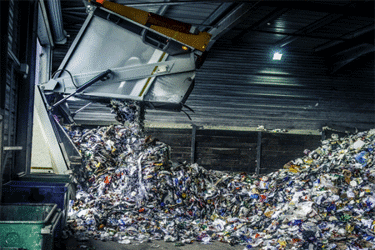Study: Recycling Plants Produce Millions Of Pounds Of Microplastics, Even With Filtering


New research suggests that one of the most pervasive drinking water contaminants can come in startling numbers from a decidedly environmental practice.
“Research out of Scotland suggests that the chopping, shredding and washing of plastic in recycling facilities may turn as much as six to 13 percent of incoming waste into microplastics — tiny, toxic particles that are an emerging and ubiquitous environmental health concern for the planet and people,” Inside Climate News reported. “If the team’s calculations are ultimately found to be representative of the recycling industry as a whole, the scale of microplastics created during recycling processes would be shocking — perhaps as much as 400,000 tons per year in the United States alone, or the equivalent of about 29,000 dump trucks of microplastics.”
The impact of microplastic consumption through drinking water is increasingly coming under regulatory scrutiny, and could have significant implications for drinking water treatment and wastewater treatment operations alike.
Studying a single recycling facility and extrapolating the results to guess at the industry’s total, this research points to just how widespread and resistant to change microplastic contamination is, and it suggests that there may be only one real solution to microplastics in drinking water: wholesale elimination.
“The findings are disturbing but not surprising,” Judith Enck, a former senior official with the U.S. EPA, told The Guardian. “This one recycling facility, a state-of-the-art facility, demonstrates the serious problem of using plastics. It causes serious problems, even in terms of the infrastructure to recycle plastics. It is a clarion call to use less.”
To read more about how treatment operations address contaminants like microplastics, visit Water Online’s Drinking Water Contaminant Removal Solutions Center.
